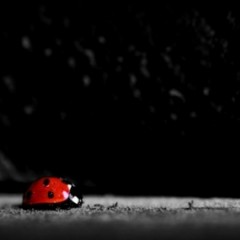Right.
Now for apostrophes.
You would be a rare writer indeed if you have never made a mistake when using - or abusing - apostrophes!
They must be the most over-used and incorrectly used of all punctuation marks, yet every human who has attended school was, at some stage (around Grade 3 or 4) taught how to use them. So why the difficulty?
Let's go over their main uses.
1. Contractions
When we speak English, most of us use contractions without thinking:
don't, won't, can't, I'm, you're etc.
An apostrophe is used to denote or replace the 'missing' letter (or letters) when you write these words. For the examples above, the words that make up these contractions are:
do not...do (no)t
will not...won(ill no)t (actually - this is a difficult one and you just need to learn to write it correctly as it doesn't follow any specific rule)
can not...can (no)t
I am...I (a)m
you are...you (a)re (more on this one in a minute!)
There are simply dozens of contractions in common usage and they ALL require an apostrophe in writing. These include:
shan't (shall not) they'll (they will) he'll (he will) they've (they have) I've (I have), doesn't (does not) and the list goes on. Learn them! Use them correctly! Be an expert!
Two more important points about contractions
Firstly...PLEASE, if you take nothing else from this tutorial, learn to use the correct contraction for YOU ARE.

Over and over again, I see otherwise good writing, from people who should know better, spoiled by the use of YOUR instead of YOU'RE (you are). And that doesn't include 'Engrish' writers - people whose* second language is English.
The word YOUR is a possessive (belonging) adjective (describes a noun).
Stepping back just a little, I'm assuming that you all know the difference between verbs (doing words) nouns (names for things) adjectives (describes a noun) and adverbs (describes a verb).
To continue, YOUR is used like this:
your book, your dog, your father and mother - see how it describes (an adjective) something that belongs to you ('you' is the noun (or pronoun) in these cases)
Now for YOU'RE
Although the words sound the same - your and you're - their meanings are totally different. And the easiest way to tell whether you are (you're) using the correct word, is to ask yourself...can I replace 'your' with 'you are'? If you can, then use 'you're'.
For example:
You're going to love my dog beds (YOU ARE going to love my dog beds)
You're at the best place to buy yak felt dog beds (YOU ARE at the best place to buy...)
NOT
Your going to love....
Your at the best place
Can you see the difference? Sounds the same - means something completely different!
Secondly, another really abused word is we're which is short for WE ARE. Do NOT use 'where' which is a preposition (asks where something is) but sounds the same as the contraction WE ARE. So if you are saying:
WE ARE the best at what we do, its:
WE'RE the best, not WHERE the best. Or worse - WERE the best.

OK - that's it for this lesson. Last one in this tutorial are possessive apostrophes.
Get ready...
* I made an oops mistake the other day - I wrote "You and who's army?" The word 'who's' is a contraction of who is, it is not the possessive pronoun. If you are tempted to use 'who's' ask yourself - can I say 'who is'? If you can't, use 'whose'. (Hmm - almost a poem there!)
P.S. There is a deliberate mistake on page 9. Find it and PM me - don't write it in the comments section. Any other errors - please let me know in the comments.
And then: "...are made of finest yak felt...", shouldn't that be: "...are made of THE finest yak felt..."? WIthout the capitalisation, of course?
At point 2, a space between 'to' and 'join' is missing.
I think I have my commas reasonably under control, even though I'm handicapped by my native language (Dutch) using a slightly different set of rules for their usage. But when the Oxford comma comes into play I get hopelessly lost. The colons and semicolons tend to drive me bonkers at times. If I can just remember what you wrote about them here, I might improve!
I really like this training, because I need it.
Since my mother tongue is not the English language, it is hard to get some content well written.
Do you have maybe an idea how I can improve the quality of my content with a tool or something?
I use the free plug-in of Grammarly.com right now, but it's expensive to buy it.
Thanks,
Grtz,
Bert










